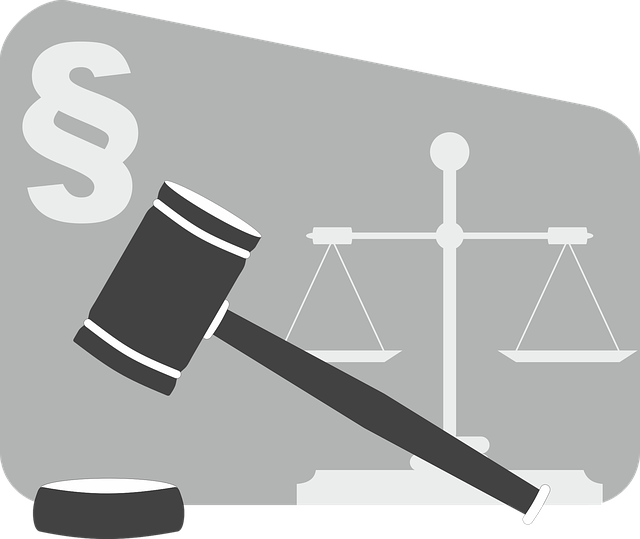The healthcare industry faces a surge in financial fraud due to complex services and data, requiring a robust response from skilled litigators. These professionals navigate regulatory nuances to combat activities like billing errors and conspiracy rings, ensuring accountability and protecting patient access to care. Collaboration between general criminal defense attorneys and regulatory bodies strengthens regulations, improves data security, and enhances public awareness through investigative and enforcement stages. Understanding the healthcare regulatory litigation process is vital for risk management, compliance, and effective legal defense in financial fraud cases. Technological advancements, particularly artificial intelligence (AI) and machine learning, accelerate fraud detection by analyzing vast datasets to identify patterns and anomalies with remarkable speed and accuracy.
In the dynamic landscape of healthcare, financial fraud detection is a paramount concern. This comprehensive guide delves into the intricate world of healthcare fraud, exploring its rising trends and profound impact. We navigate the complex regulatory environment, dissecting crucial laws and compliance measures essential for deterrence. Technological advancements and innovative strategies are examined, offering insights into effective detection methods. Furthermore, we demystify the litigation process, from initial investigation to justice servicing, providing a holistic understanding of healthcare regulatory litigation.
- The Rise of Healthcare Fraud: A Comprehensive Overview
- Navigating the Regulatory Landscape: Laws and Compliance
- Detection Methods: Technological Advancements and Strategies
- Litigation Process: From Investigation to Justice Servicing
The Rise of Healthcare Fraud: A Comprehensive Overview
The healthcare industry has become a hotbed for financial fraud, with sophisticated schemes involving insurance claims, billing practices, and patient data. As medical services become increasingly complex and costly, so do the opportunities for fraudulent activities. Understanding Healthcare Regulatory Litigation Process is crucial in combating this rising trend. Skilled litigators play a pivotal role in navigating the intricate web of regulations and laws that govern healthcare, ensuring accountability and justice.
Healthcare fraud can take many forms, from simple billing errors to complex conspiracy rings. It not only hampers the financial health of healthcare providers but also impacts patients’ access to quality care. The philanthropic and political communities have shown growing interest in curbing this issue, with efforts focused on strengthening regulations, improving data security, and enhancing public awareness. Through all stages of the investigative and enforcement process, general criminal defense attorneys collaborate closely with regulatory bodies to identify perpetrators, recover losses, and prevent future fraud, thereby upholding the integrity of the healthcare system.
Navigating the Regulatory Landscape: Laws and Compliance
Navigating the complex web of healthcare regulations is a critical aspect of financial fraud detection. The understanding of the regulatory landscape involves comprehending a series of laws and compliance standards designed to safeguard patients, ensure ethical business practices, and prevent fraudulent activities. These regulations are vast and multifaceted, encompassing issues like data privacy, billing practices, and drug distribution.
For instance, the Healthcare Regulatory Litigation Process plays a pivotal role in holding individuals and corporations accountable for any misconduct. By adhering to these rules, businesses can avoid potential indictment and protect their respective business interests while fostering transparency and integrity within the industry. This involves meticulous record-keeping, transparent communication, and staying abreast of evolving legal requirements that impact their operations.
Detection Methods: Technological Advancements and Strategies
The evolution of financial fraud detection has been significantly propelled by technological advancements. Artificial intelligence (AI) and machine learning algorithms now play a pivotal role in identifying patterns and anomalies that may indicate fraudulent activities. These technologies can analyze vast datasets, including transaction histories, customer behavior, and market trends, to uncover potential red flags with remarkable speed and accuracy. This capability is particularly valuable in complex financial sectors like healthcare, where understanding the regulatory litigation process is crucial for managing risks and ensuring compliance.
The integration of advanced analytics and data science has enabled more sophisticated fraud detection strategies. These methods go beyond traditional rules-based systems by employing machine learning models that can adapt to evolving fraud schemes. This adaptability is essential in combating white-collar and economic crimes, given their intricate and often unprecedented track record. By continuously learning from new data, these systems enhance the ability to detect and prevent fraudulent activities across various sectors, including banking, insurance, and healthcare, thereby safeguarding corporate and individual clients alike.
Litigation Process: From Investigation to Justice Servicing
The litigation process in financial fraud cases is a complex journey that demands meticulous attention to detail. It begins with an investigation, where law enforcement agencies and regulatory bodies delve into the financial records and transactions of individuals or organizations suspected of fraudulent activities. This phase involves gathering evidence, interviewing witnesses, and constructing a compelling narrative that forms the backbone of the case. Once sufficient grounds are established, legal proceedings commence, guiding accused parties through a series of hearings and trials.
For his clients facing white-collar and economic crimes, understanding the healthcare regulatory litigation process is paramount. The journey from investigation to justice servicing requires navigating intricate legal frameworks specific to financial sectors. Effective representation in general criminal defense strategies can significantly impact outcomes, ensuring that rights are protected and guilt or innocence is determined through a fair and transparent process.
Financial fraud in healthcare has become a complex web that demands a multi-faceted approach. By understanding the rise of this issue, navigating regulatory landscapes, adopting advanced detection methods, and employing robust litigation processes, we can unravel and combat this intricate fraud tapestry. The interconnectedness of these strategies is crucial in ensuring justice and maintaining the integrity of the healthcare system. This comprehensive overview highlights the importance of staying vigilant, embracing technological advancements, and upholding legal standards to create a sustainable solution for detecting and preventing healthcare fraud.






